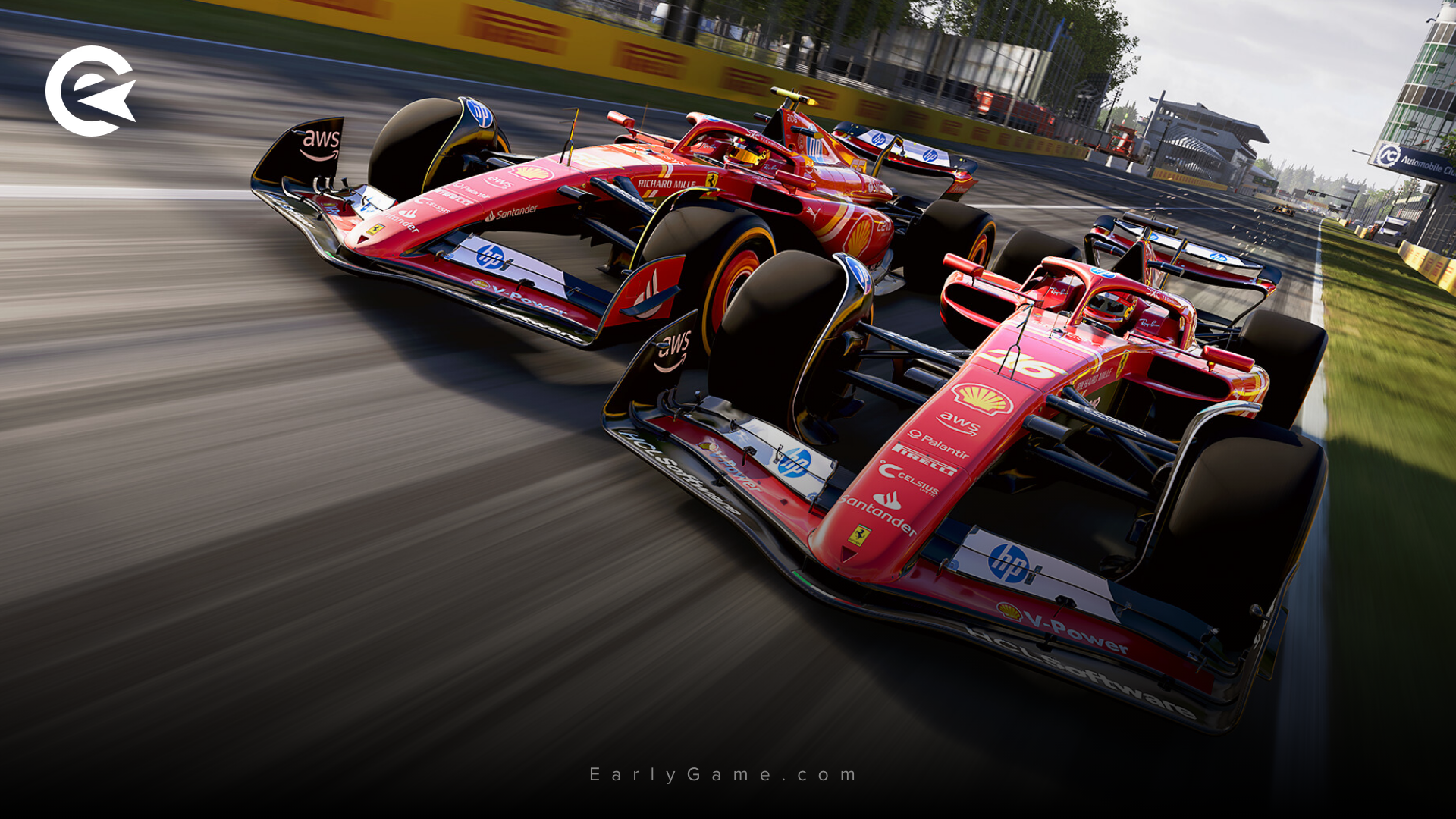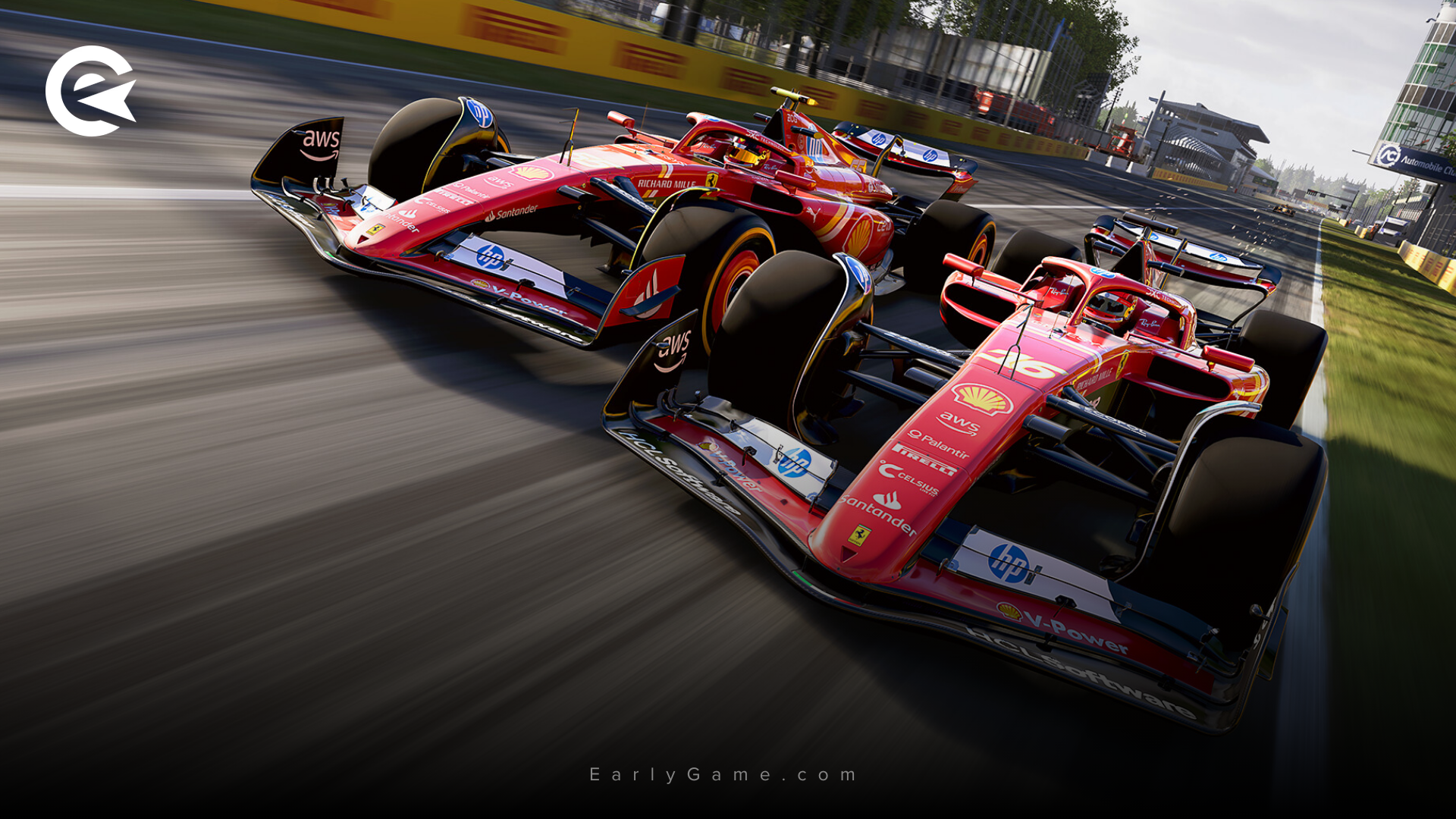The Formula 1 game franchise has been a staple for motorsport fans for decades, offering an immersive and thrilling experience of the pinnacle of open-wheel racing.

Codemasters, known for its commitment to quality racing simulations, had a strong run with the F1 series from 2009 to 2020, continuously improving on features such as dynamic weather, realistic car handling, and the introduction of My Team.
However, when EA Sports took over a large part of development in 2021, things started to change – drastically. While F1 2021 still carried many of Codemasters’ hallmarks, subsequent releases have seen a sharp decline in quality, popularity, and overall player satisfaction.
From gameplay changes that alienated the player base to bugs that went unaddressed for months, EA’s presence in the franchise has been felt, and not in a good way.
A Brief History of the F1 Games
The F1 gaming journey started with F1 2000, developed by EA Sports, which brought players into the world of Formula 1 with a full season experience, immersive damage models, and engineer radio chatter.
However, EA soon lost exclusivity, and from 2003 to 2009, Sony Studios held the rights, releasing PlayStation-exclusive games. Titles like Formula One Championship Edition for the PS3 offered innovative features such as realistic rain races and customizable race starts
Codemasters took over in 2009, reintroducing the series to all major platforms. They consistently improved the game over the years, adding safety cars, formation laps, and a robust career mode. F1 2020 was widely regarded as one of the best in the series, introducing the beloved My Team mode
EA returned to the franchise in F1 2021, bringing a story mode called Braking Point – a welcome addition that resonated well with players. However, it was with F1 22 that the decline became evident.
The Steep Drop in Popularity
F1 2020 and F1 2021 both reached an all-time peak player count of around 25,000 concurrent players on Steam. F1 22 initially followed suit, but something changed:
By the time F1 23 launched, peak players had plummeted to just 14,512, and F1 24 hit an all-time low of only 8,216 players
This drop in popularity aligns almost perfectly with EA’s growing influence in the series, as well as the shift in real-life F1 regulations starting with the 2022 season.
EA seemingly attempted to compete with hardcore sim racing titles like iRacing, adjusting the handling model in a way that disappointed casual players.
Even Max Verstappen, a known sim racing enthusiast, was consulted on car handling, but the final product left many players frustrated.
New tracks like Miami were almost unplayable without a steering wheel unless you invested countless hours of practice. You could dismiss it as a "skill issue," but EA made a problem worse that didn't even exist before.

The EA Effect: Unwanted Features, Bugs, and a Loss of Identity
F1 2021 was a high point for the series. It introduced DLC tracks mid-season, including Imola, Portimão, and Jeddah, a feature that fans adored. However, when EA fully took over in F1 22, it was clear they had different priorities.
Instead of retaining the historic F1 cars that had been a beloved part of the franchise – such as Schumacher’s 2004 Ferrari or Vettel’s 2010 Red Bull – they replaced them with F1 World and road-going supercars.
This change baffled players, as classic F1 cars had been a staple for years, while supercars had no real place in an F1 game.
Then came F1 23, which was riddled with issues. Perhaps the most egregious was the discovery that even with equal performance enabled in online races, tyre wear was inconsistent between cars. This was just one of many game-breaking problems that went unaddressed, and players grew increasingly frustrated with the lack of fixes.
This consistent stream of poor decisions has seemingly led to a drastic decline in sales. According to VG Insights, F1 24 has sold only 378,000 copies, compared to 520,000 for F1 23 and a massive 1.2 million for F1 2020.
EA has tried to add new features like a story mode and F1 World, but these additions have failed to win back the community.
The Future of the Franchise: A Shift to a Standalone Title?
With EA Sports and Codemasters struggling to maintain player interest, rumors have circulated that F1 25 may not be an annual release but instead a standalone game with seasonal updates.
This approach has already been adopted with EA Sports WRC, which launched in 2023 and received a 2024 season update instead of a full sequel. Given EA’s reputation for pushing yearly releases, this shift would be significant.
If EA and Codemasters decide to abandon the yearly cycle in favor of a long-term, updated F1 title, it could be a massive step in the right direction.
A standalone game would allow developers to focus on fixing bugs, improving gameplay, and potentially bringing back beloved features like classic cars and historic tracks.
What Needs to Change?
If EA truly wants to regain the trust of the F1 gaming community, they need to go back to what worked:
- Remove F1 World – This feature has been a failure, and no one asked for it.
- Bring back classic F1 cars – Fans miss legendary machines like Senna’s McLaren, Schumacher’s Ferrari, and more.
- Reintroduce classic tracks – Tracks like Hockenheim, Istanbul Park, and Magny-Cours were fan favorites.
- Improve controller handling – Not everyone has a sim racing setup, and EA’s recent handling models have made gamepad play unnecessarily difficult.
If EA can make these changes, there is still hope for the F1 series. Otherwise, it risks following the same path as other once-great franchises that fell victim to corporate greed and mismanagement.
The games have been getting worse year after year, and it is time for EA to listen to the community and take countermeasures before it is too late, and Formula 1 raises the red flag.




























